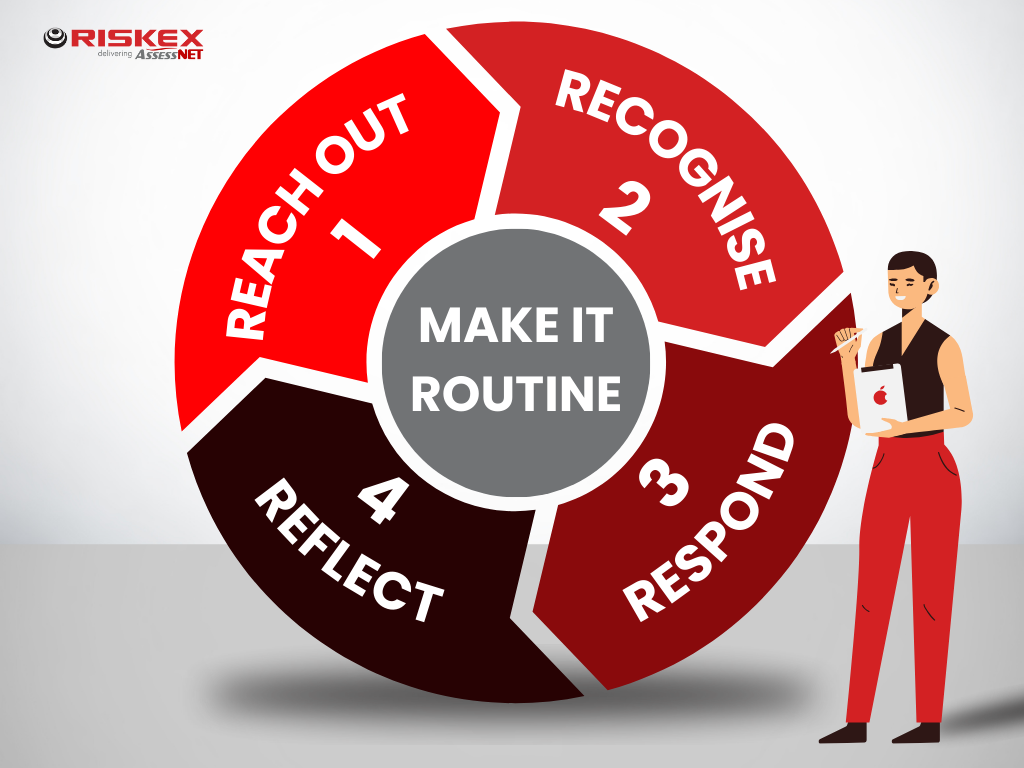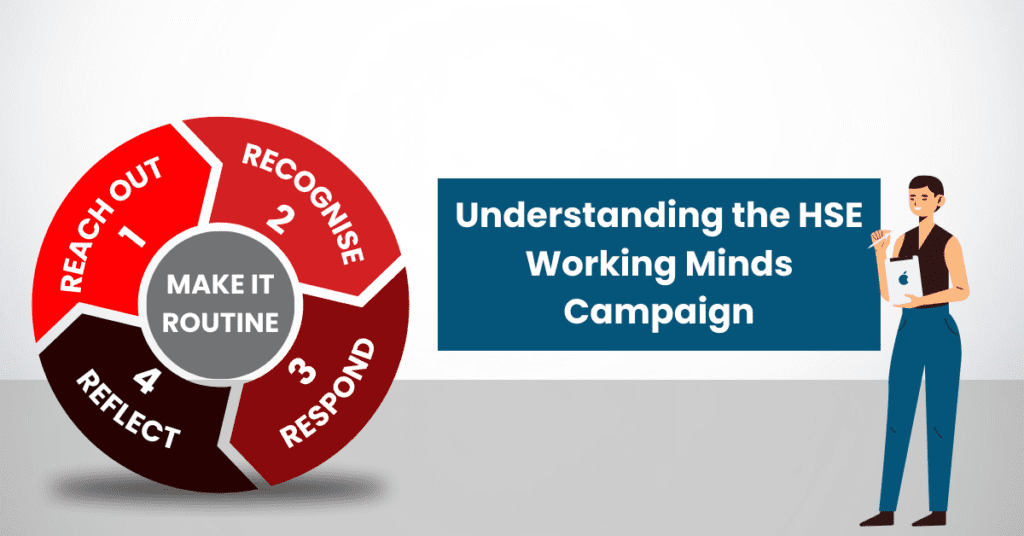Understanding the HSE Working Minds Campaign: A Strategic Move to Prioritise Mental Health at Work
In the ever-evolving landscape of workplace health and safety, the importance of mental well-being has gained significant traction.
Deloitte has reported that since 2019 the cost of poor mental health has increased by 25%, costing UK employers up to £56 billion a year.
The Health and Safety Executive (HSE) in the UK, recognising the pressing need to address mental health challenges in the workplace, launched the Working Minds campaign. This initiative is not just a reactive measure to current trends, but a proactive strategy aimed at fostering long-term mental resilience among employees across various sectors.

The Rationale Behind the HSE’s Working Mind’s Campaign
The Working Minds campaign stems from a growing concern over work-related stress, anxiety, and depression, which are now leading causes of occupational ill health. According to HSE statistics, in recent years, nearly half of all work-related illnesses have been linked to poor mental health. These issues have not only a human cost but also a significant economic impact, leading to increased absenteeism, reduced productivity, and higher turnover rates.
The campaign’s core objective is to provide businesses with the tools and knowledge necessary to create environments where mental health is prioritised on par with physical safety.
Key Components of the HSE’s Working Mind’s Campaign
- Raising Awareness: The campaign seeks to increase awareness of mental health issues in the workplace, particularly focusing on stress management. The HSE emphasises the importance of recognising the early signs of stress and the potential long-term consequences if left unaddressed. The campaign encourages open conversations about mental health, aiming to reduce stigma and promote a culture of support.
- Providing Practical Support: Beyond awareness, Working Minds offers practical resources for businesses. This includes guidance on conducting stress risk assessments, implementing control measures, and integrating mental health into existing health and safety frameworks. By equipping employers with actionable strategies, the campaign ensures that mental health management becomes an integral part of day-to-day operations.
- Encouraging Leadership Commitment: A pivotal element of the campaign is the role of leadership in driving change. The HSE advocates for senior leaders to visibly commit to mental health initiatives, setting the tone for the entire organisation. This includes allocating resources, ensuring accountability, and leading by example in promoting mental well-being.
- Supporting Small and Medium Enterprises (SMEs): Recognising that SMEs may lack the resources of larger corporations, the Working Minds campaign provides tailored support to these businesses. The HSE offers simplified tools and advice that are scalable to smaller operations, ensuring that mental health considerations are accessible to all organisations, regardless of size.
The Business Case for Prioritising Mental Health
Investing in mental health is not just an ethical imperative, it is a sound business strategy. Numerous studies have shown that businesses with strong mental health support systems experience lower absenteeism, higher employee engagement, and better overall productivity. The Working Minds campaign aligns with these findings, advocating for mental health as a critical component of business success.
Moreover, as the workplace evolves with remote work and flexible arrangements becoming more prevalent, the mental health landscape also changes. Employers who proactively address these shifts through campaigns like Working Minds are likely to be better positioned to attract and retain top talent, particularly as mental health becomes an increasingly important factor for job seekers.
Example of a case study that supports the correlation between mental health support and lower absenteeism: Edinburgh Airport
Edinburgh Airport has taken a proactive approach to providing this support and the business is benefiting with reduced staff turnover and a decrease in stress related absence. The aim is to ensure that all staff are aware of the support that is available to them and know they will be supported if they experience a problem in their personal or work life.
Key winning insights in the case study:
- Their level of absence related to mental ill health has reduced by 10% in the last 2 years.
- Employee absence at Edinburgh Airport remains below 3% per annum.
- 38.7% of occupational health referrals in 2019 related to mental health concerns, compared to 25.4% in 2018.
- Absence target is 3%. Over the past 4 years, the overall absence average has been 2.76%.
Edinburgh Airport won the 2020 Scottish Top Employers Award for Health and Wellbeing.
You can read the full case study here
Conclusion: A Call to Action
The HSE Working Minds campaign is a timely and necessary initiative in today’s work environment. It calls on businesses to integrate mental health into their core health and safety practices, providing the tools and support needed to do so effectively. For businesses, the message is clear: prioritising mental health is not just about compliance—it’s about building a resilient, productive, and engaged workforce that is equipped to meet the challenges of the modern workplace.
In summary, the Working Minds campaign is more than just a response to a growing problem; it is a strategic investment in the future of work, where mental well-being is recognised as a cornerstone of organisational success.
How does your business Manage employee risk assessments for mental health? Do they meet the needs of individuals? What about privacy and data protection? And importantly, how do you act on flags raised? Call to find out how our clients use the award-winning AssessNET Risk Assessment software – 01908 915272.






